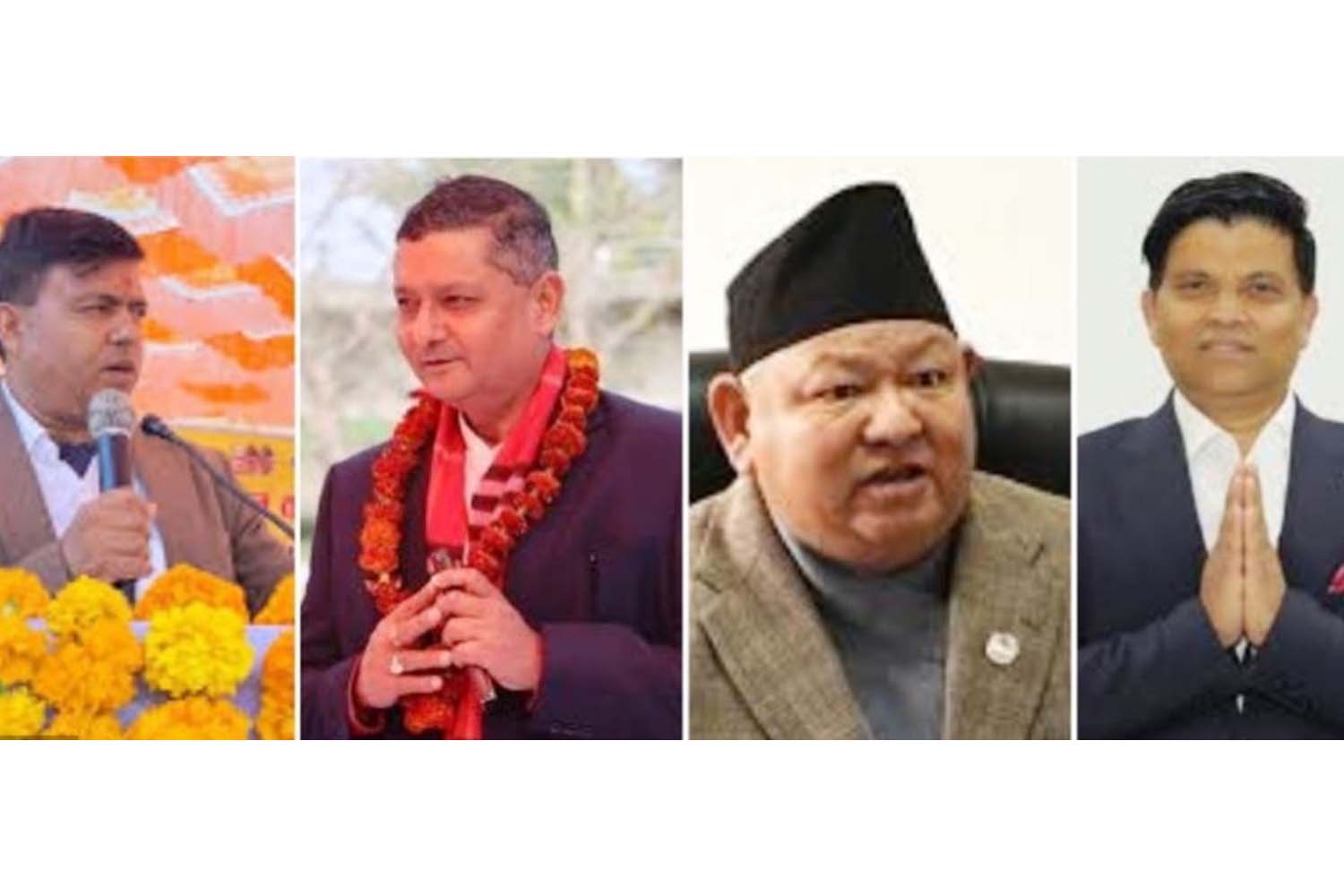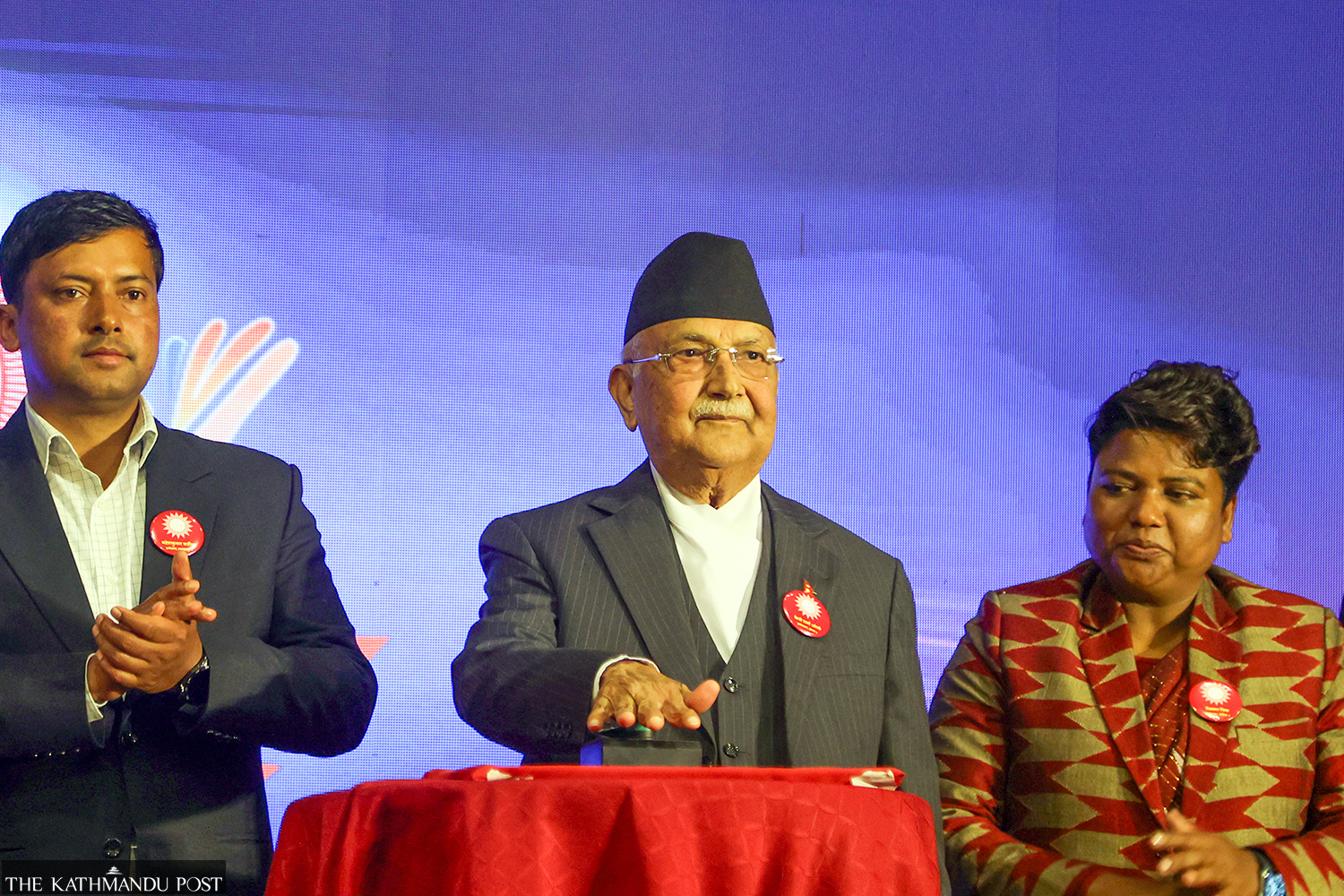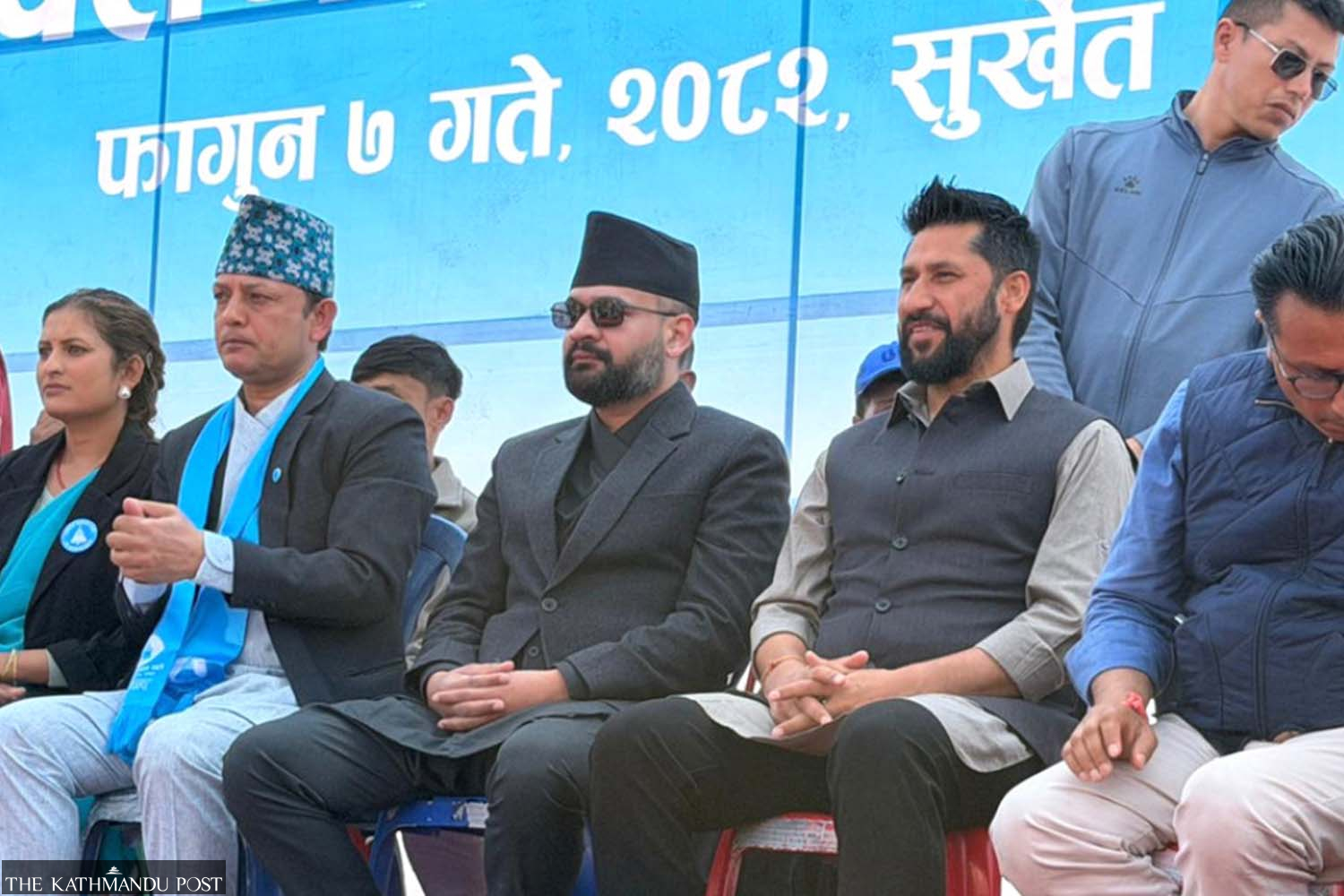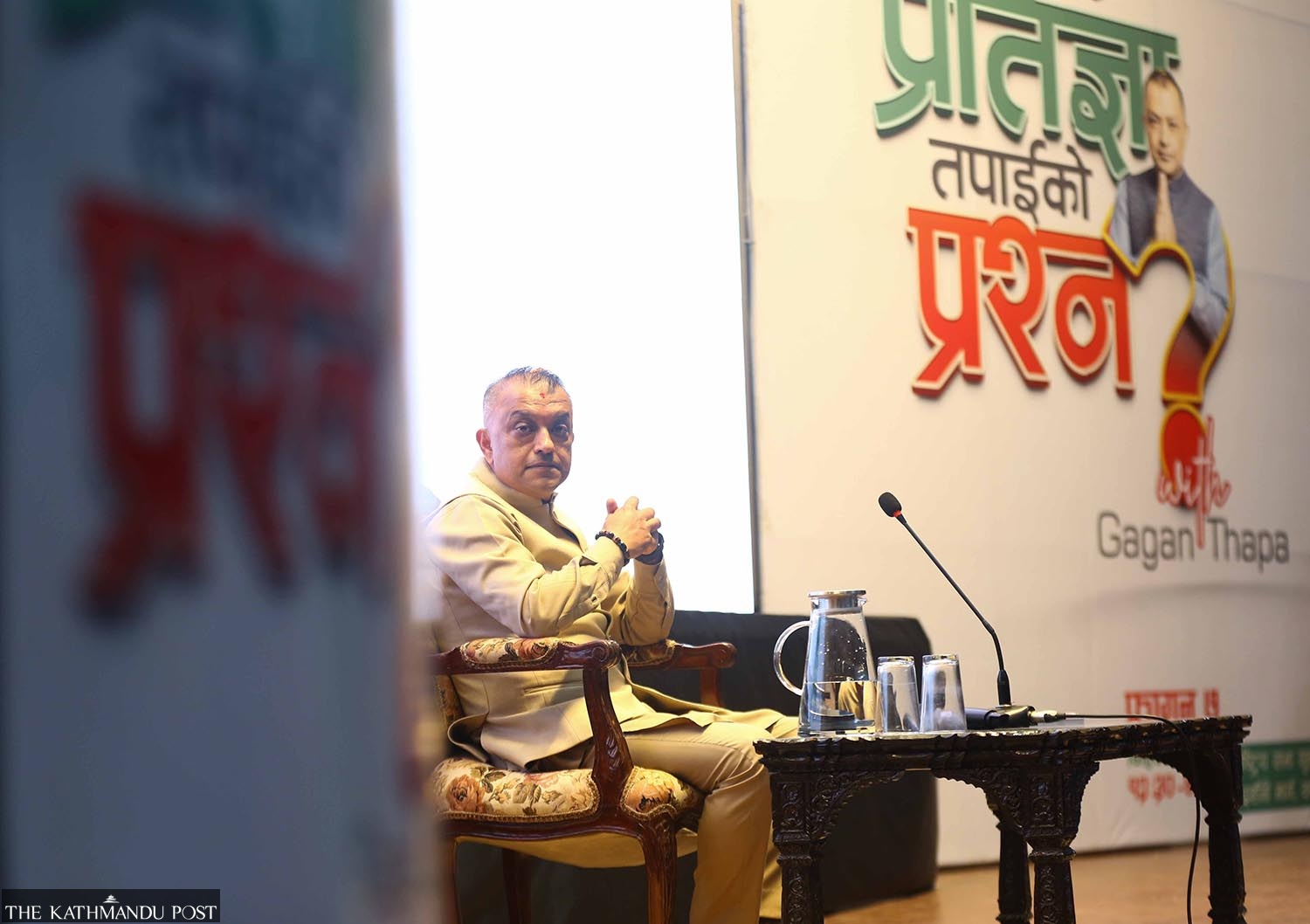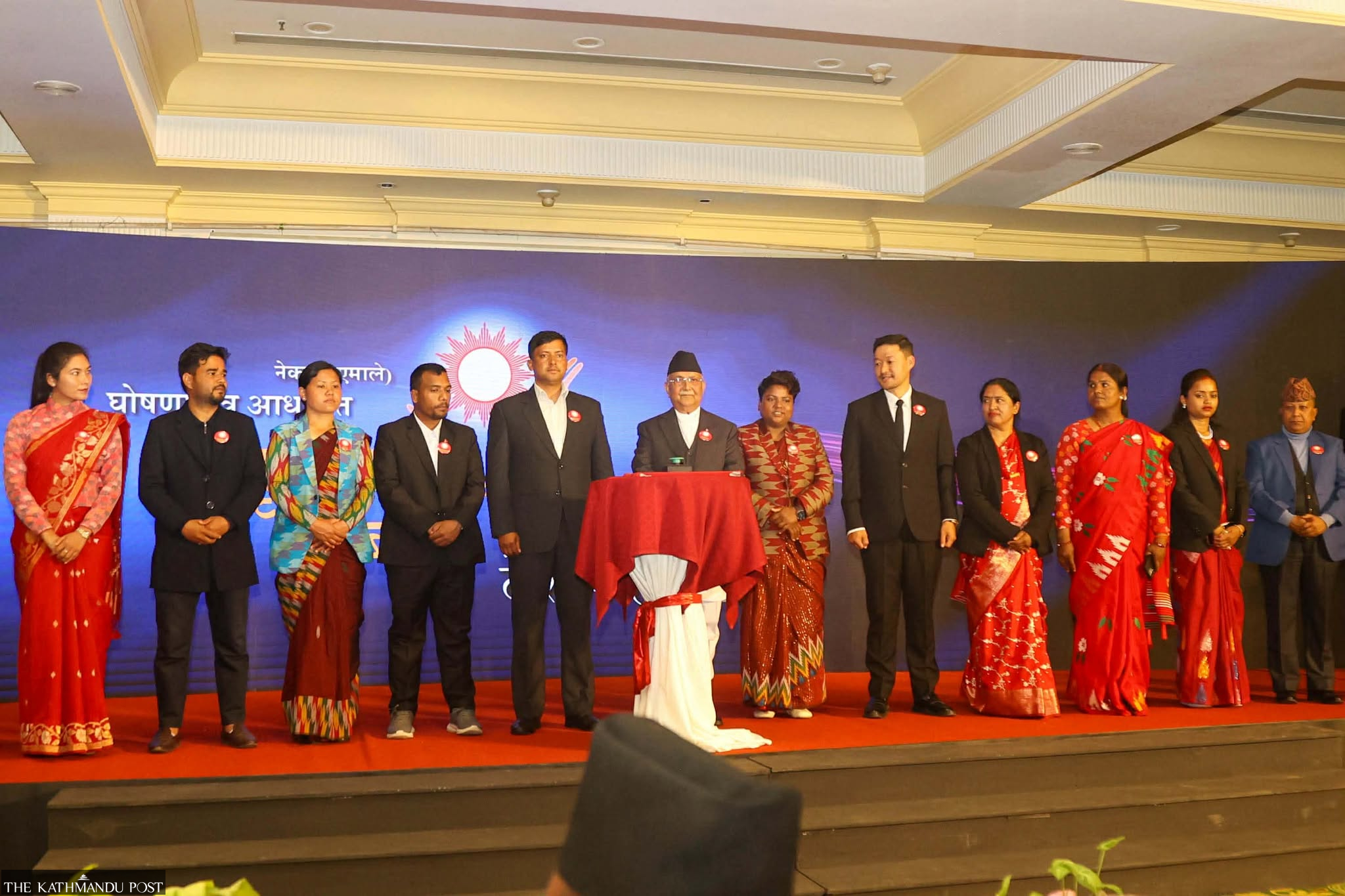Politics
What is the controversy over Agni Sapkota as Speaker all about?
Ever since the ruling Nepal Communist Party selected Sapkota as its candidate for Speaker of the House, rights activists and conflict victims have protested the decision.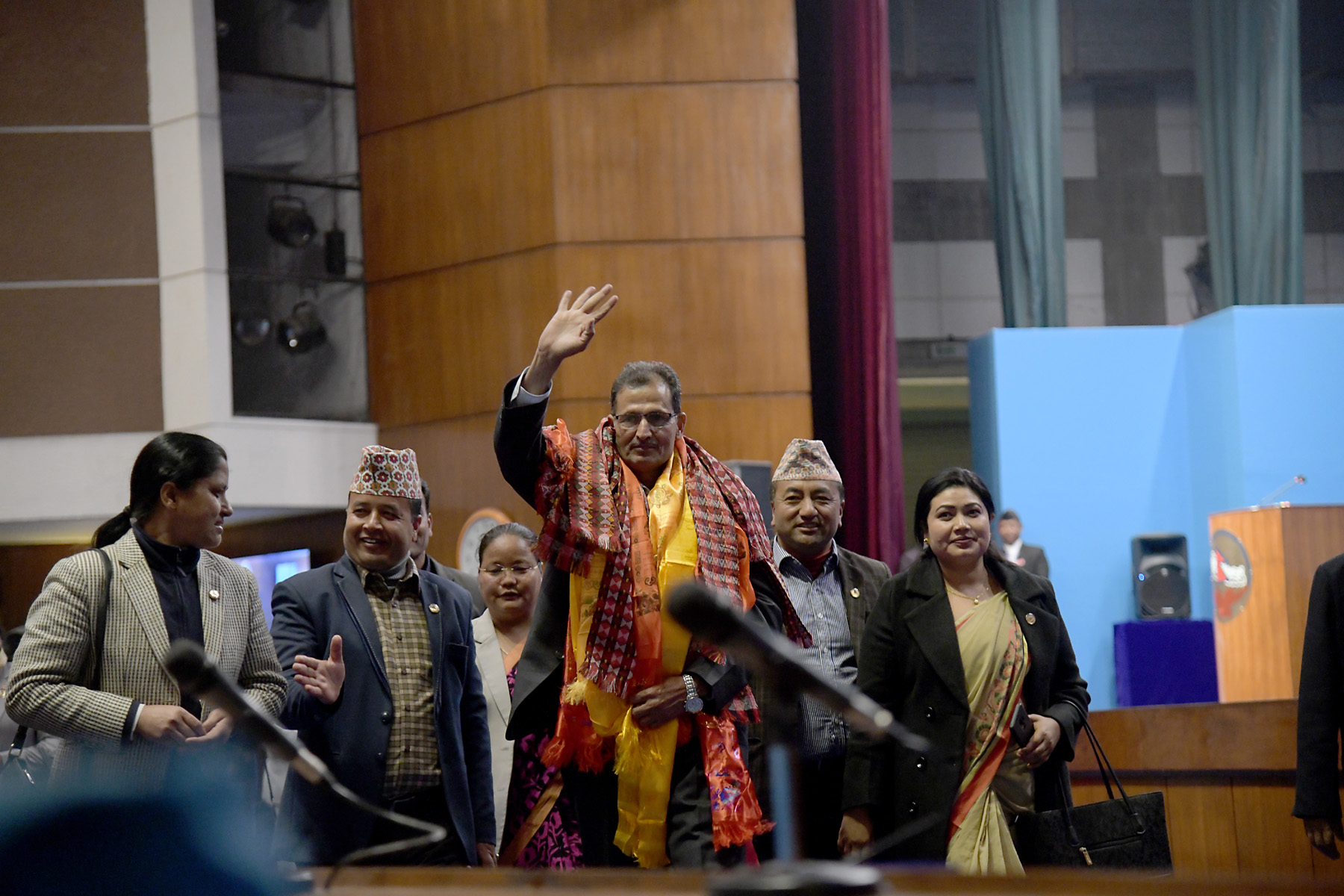
Mohan Guragain
Agni Sapkota, a Maoist leader since 1995, was elected new Speaker of the House of Representatives on Sunday, despite criticism and protests. The Speaker post had been vacant since early October last year, after Krishna Bahadur Mahara, also a Maoist leader, stepped down following allegations of attempted rape. Since no other candidate was contesting the post, Sapkota was elected unopposed.
On Monday, President Bidya Devi Bhandari administered the oath of office to Sapkota, following which he assumed office, just as the Supreme Court was hearing a writ filed against Sapkota, demanding his immediate arrest. Human rights activists had opposed Sapkota’s nomination and have objected to his election to the legislature’s highest post on the grounds that there is a murder case against Sapkota currently pending at the Supreme Court.
Here’s everything you need to know about the controversy surrounding Sapkota.
Who is Agni Sapkota?
Born in March 1958 in Kubhinde of Sindhupalchok, Sapkota started his political life as a student activist. His initial affiliation was with the Communist Party of Nepal (Fourth Convention). By profession, he was a teacher until 1995, when he joined the Maoist party. The following year, the Maoists launched an insurgency against the state and Sapkota was underground until the peace deal in 2006. He won both Constituent Assembly elections, in 2008 and 2013, from Sindhupalchok Constituency-2. In the 2017 parliamentary elections, he won from Sindhupalchok Constituency-1. He served twice as minister—in 2011 and 2015. In the Nepal Communist Party, born from the merger of the Maoist party with the UML, Sapkota is considered to have close relations with party Co-chair Pushpa Kamal Dahal, who picked him for the post of Speaker.
Why is there a controversy around Sapkota?
Sapkota faces a kidnapping and murder charge. According to a case filed at the Supreme Court on March 3, 2008 by Purnimaya Lama, Sapkota and other Maoist leaders, including Suryaman Dong, were involved in the abduction and murder of her husband Arjun Lama. Purnimaya had gone to the Supreme Court after the Kavrepalanchok District Police Office refused to register her first information report identifying Sapkota as one of the persons involved in the murder of her husband. The Supreme Court had asked the concerned authorities, including the police, to register Purnimaya’s case and update it every 15 days.
The case is currently pending at the Constitutional Bench of the Supreme Court. In 2011, when Sapkota was appointed a minister in the Jhala Nath Khanal administration, a group of human rights activists had filed a writ demanding that Sapkota not be made a minister as he is accused of murder. The court refused to give an interim order, saying that Sapkota had not been convicted in a court of law and hence, it was incumbent upon his own morals to resign.
Why did the controversy come about again?

Nepal’s transitional justice process has made little progress over the last decade. Two commissions formed to investigate cases from the decade-long Maoist insurgency have registered more than 60,000 cases from conflict victims. The Truth and Reconciliation Commission and the Commission of Investigation on Enforced Disappeared Persons had been without representatives since April last year.
A committee formed under former chief justice Om Prakash Mishra to recommend names for the two commissions was largely idle for almost 10 months. But on January 17 this year, the ruling Nepal Communist Party and opposition Nepali Congress reached a deal on officials for the two commissions. The Mishra-led committee swiftly recommended the names selected by the parties. The officials were picked on quota basis. Truth commission chairmanship was given to Ganesh Dutta Bhatta under Congress quota. The leadership of the disappearance commission went to the ruling party and Yuba Raj Subedi became the chair of the commission. Officials were also divided accordingly.
On January 19, ruling party co-chairs KP Sharma Oli and Pushpa Kamal Dahal ended their month-long negotiation on the next Speaker and decided to nominate Sapkota for the post, despite Oli vying to place Subas Nembang in the position.
The decision to nominate a person accused of murder to a post vacated by a person accused of attempted rape created an uproar among conflict victims and rights activists. A week later, on January 24, advocate Dinesh Tripathi filed a writ at the Supreme Court demanding Sapkota’s arrest, investigation into the charges he is facing, dismissal of his nomination as Speaker, and a halt to the Speaker election process. A hearing was scheduled for January 26, the day Speaker election was scheduled.
What happened at the Supreme Court and the House of Representatives?
Tripathi’s writ against Sapkota was assigned to Justice Hari Phuyal, who was supposed to hear the case on January 26. But Phuyal had a conflict of interest as in the past, as a practicing lawyer, he had argued on behalf of a group of human rights activists who had filed a writ against Sapkota. The Supreme Court rescheduled the hearing for the following day, January 27. The House, however, went ahead with its proceedings on January 26. Since there was no other candidate against Sapkota, he was elected unopposed.
What happened to the writ?
After hearing the case on January 27 and 28, the Supreme Court on Tuesday refused to issue an interim order against Sapkota, but recognised that questions raised over the appointment of a person facing a murder charge to the legislature’s highest post were justified. A single bench of Justice Sapana Pradhan Malla, who after hearing arguments on Monday and Tuesday, observed that there was no point in issuing an interim order as Sapkota had already assumed office after his election and oath.
The single bench, however, asked the Ministry of Home Affairs and the Kavrepalanchok District Police Office to furnish a progress report within 30 days regarding the status of earlier interim orders and the investigation into Sapkota’s case.
“A woman whose husband was killed in 2005 is still demanding justice,” the bench observed. “It’s obvious for questions to be raised about the obstruction of justice when a man facing murder charges reaches the legislature’s highest post.” The bench noted that it expects Sapkota to use his conscience while discharging his duties as questions have been asked over his appointment as House Speaker and a member of the Constitutional Council.
Advocate Om Prakash Aryal, who pleaded on behalf of Tripathy’s writ, described the court’s observations as meaningful. He said the court order authorises the Kavre District Police Office to move its investigation forward, as the onus to report the status of the case is on the police.
What are the concerns of the international community?
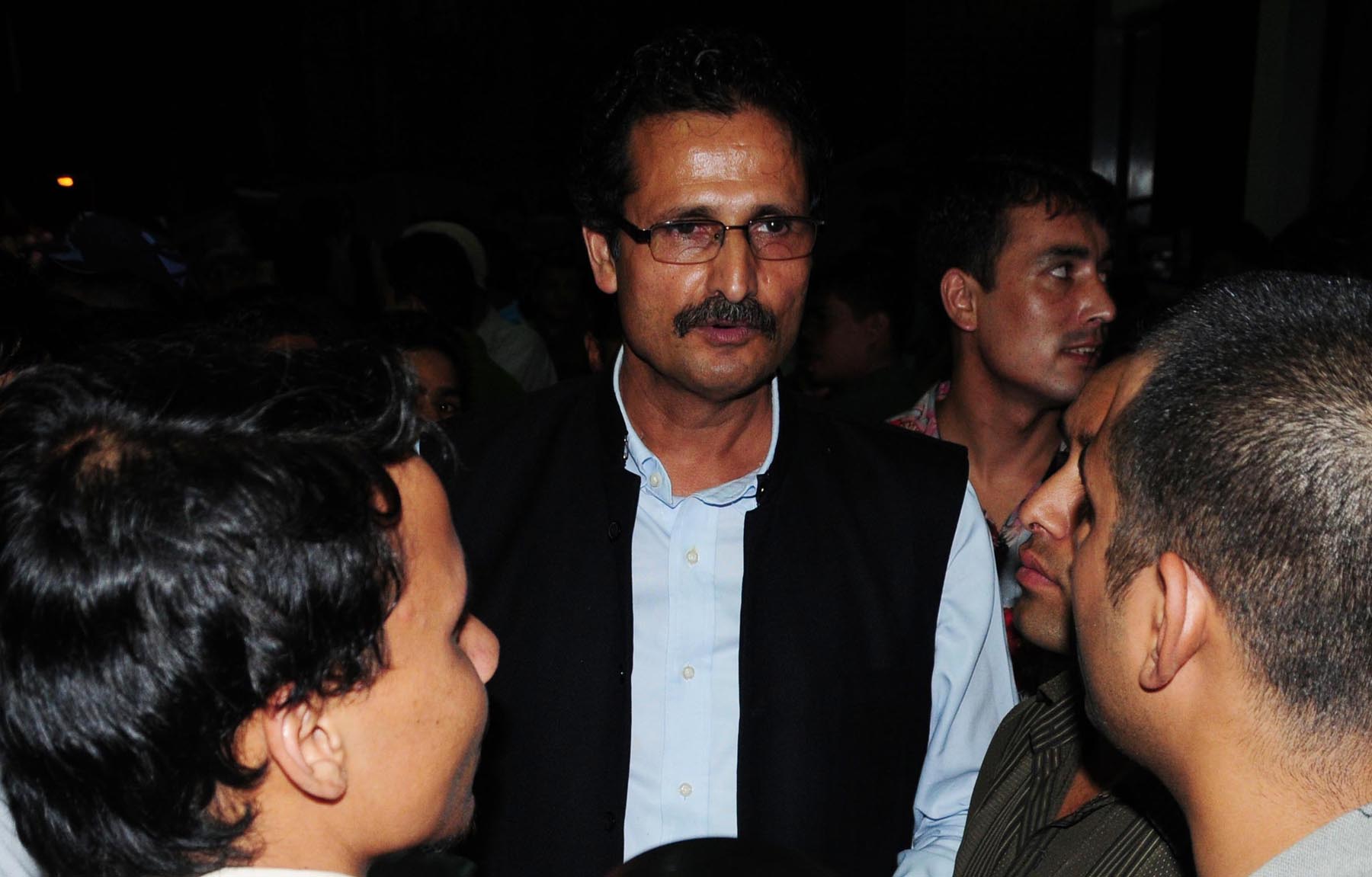
The international community has long criticised the Nepal government and the parties for failing to conclude the transitional justice process, which has been dragging on for over a decade now.
A day before Sapkota’s election as the House Speaker, four international human rights organisations had issued a statement saying that the move to nominate a person accused of murder undermined the transitional justice process.
In the statement, the International Commission of Jurists, Amnesty International, Human Rights Watch and TRIAL International described the recent steps taken by the Nepal government and the parties—on transitional justice appointments and the Speaker—as a serious setback for the transitional justice process.
They even warned that conflict victims could be forced to seek justice internationally under universal jurisdiction if the Nepal government and parties continued to ignore their concerns.
Why was Sapkota nominated in the first place?
Many in the ruling party believe that by pushing Sapkota for Speaker, Dahal wanted to send a message that insurgency-era cases should be dealt with by transitional justice mechanisms, rather than the regular courts.
Agreements on officials for the transitional justice commissions and Sapkota as Speaker came on the heels of a public statement by Dahal on insurgency-era deaths.
At a January 15 programme in the Capital, Dahal said he was ready to take responsibility for 5,000 deaths during the conflict. “Of the 17,000 killed during the war, 12,000 were killed by the state,” Dahal said. The Maoist commander, who became prime minister twice after the 2008 Constituent Assembly elections, has openly expressed his fears of wartime atrocities being referred to the International Criminal Court in the Hague. This was evident when he threw up a challenge in July last year to be taken to the Hague if necessary.
Conflict victims believe that the parties may be trying to settle insurgency-era cases in ways that benefit them.
“The way the Speaker has been elected shows that the government and parties are bent on institutionalising impunity,” said Suman Adhikari, former chairperson of the Conflict Victims’ Common Platform.
Why did the Nepali Congress fail to mount an opposition?
Congress leaders have admitted that party president Deuba made concessions in return for a stronger say on the Constitutional Council, where he is a member in his capacity as leader of the opposition. The Constitutional Council is an important body that appoints ambassadors and officials to constitutional bodies. Council meetings have been deferred several times in the past as a result of Deuba not showing up, expressing his disagreements with its decisions that favoured the ruling party.
Ram Chandra Poudel, a senior Congress leader, affirmed that a deal had been struck among Deuba, Oli and Dahal regarding the Speaker’s post and the transitional justice bodies.
There are also other pressing concerns due to which Deuba is not opposed to the ruling party, say insiders.
When it comes to the transitional justice process, Deuba and Dahal are the major parties—one as leader of the government during the insurgency and the other as supreme commander of the Maoist army.
But according to one Congress leader, any such deal between the ruling and opposition parties will not bode well for the drawn-out transitional justice process.
Read Related Stories:
- Oli and Deuba both want MCC ratified but Sapkota stands in their way
- Sapkota becomes Speaker amid concerns from conflict victims and rights watchdogs
- Hearing on writ against Agni Sapkota stalled as the case was assigned to Judge Phuyal
- Congress allows Sapkota to run unopposed for Speaker, showing there’s a larger game afoot
- Sapkota for House Speaker is a win for the Maoist faction of ruling party




 13.12°C Kathmandu
13.12°C Kathmandu
